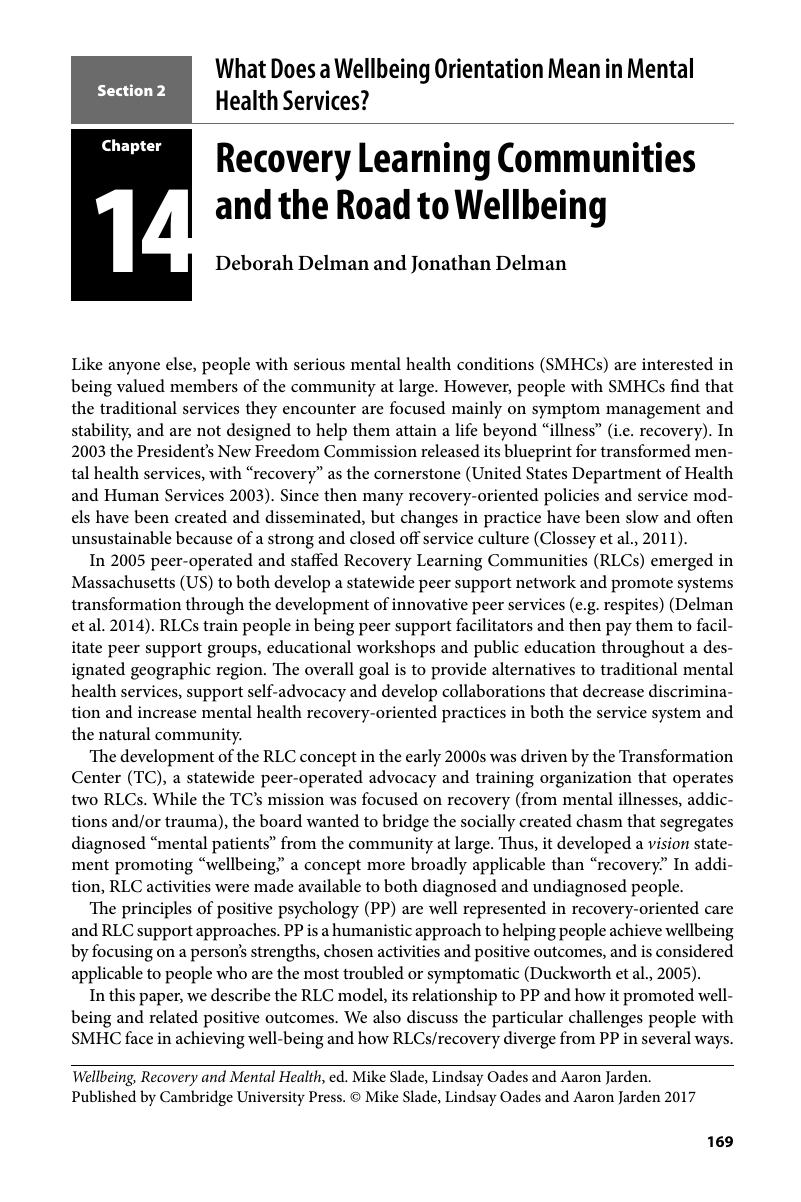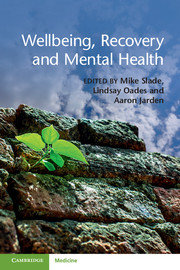Book contents
- Wellbeing, Recovery and Mental Health
- Wellbeing, Recovery and Mental Health
- Copyright page
- Contents
- Contributors
- Foreword
- Chapter 1 Why Wellbeing and Recovery?
- Section 1 Where Are We Now?
- Section 2 What Does a Wellbeing Orientation Mean in Mental Health Services?
- Chapter 9 Collaborative Recovery Model
- Chapter 10 Positive Psychotherapy
- Chapter 11 WELLFOCUS PPT for Psychosis
- Chapter 12 Mobile Health for Illness Management
- Chapter 13 Wellbeing and Recovery in the Emergency Services
- Chapter 14 Recovery Learning Communities and the Road to Wellbeing
- Chapter 15 Recovery Colleges and Co-production
- Chapter 16 Wellbeing in Non-Western Cultures
- Section 3 Beyond Services: What Would a Recovery-Supporting and Wellbeing-Targeted Society Look Like?
- Index
- References
Chapter 14 - Recovery Learning Communities and the Road to Wellbeing
from Section 2 - What Does a Wellbeing Orientation Mean in Mental Health Services?
Published online by Cambridge University Press: 31 March 2017
- Wellbeing, Recovery and Mental Health
- Wellbeing, Recovery and Mental Health
- Copyright page
- Contents
- Contributors
- Foreword
- Chapter 1 Why Wellbeing and Recovery?
- Section 1 Where Are We Now?
- Section 2 What Does a Wellbeing Orientation Mean in Mental Health Services?
- Chapter 9 Collaborative Recovery Model
- Chapter 10 Positive Psychotherapy
- Chapter 11 WELLFOCUS PPT for Psychosis
- Chapter 12 Mobile Health for Illness Management
- Chapter 13 Wellbeing and Recovery in the Emergency Services
- Chapter 14 Recovery Learning Communities and the Road to Wellbeing
- Chapter 15 Recovery Colleges and Co-production
- Chapter 16 Wellbeing in Non-Western Cultures
- Section 3 Beyond Services: What Would a Recovery-Supporting and Wellbeing-Targeted Society Look Like?
- Index
- References
Summary

- Type
- Chapter
- Information
- Wellbeing, Recovery and Mental Health , pp. 169 - 180Publisher: Cambridge University PressPrint publication year: 2017

